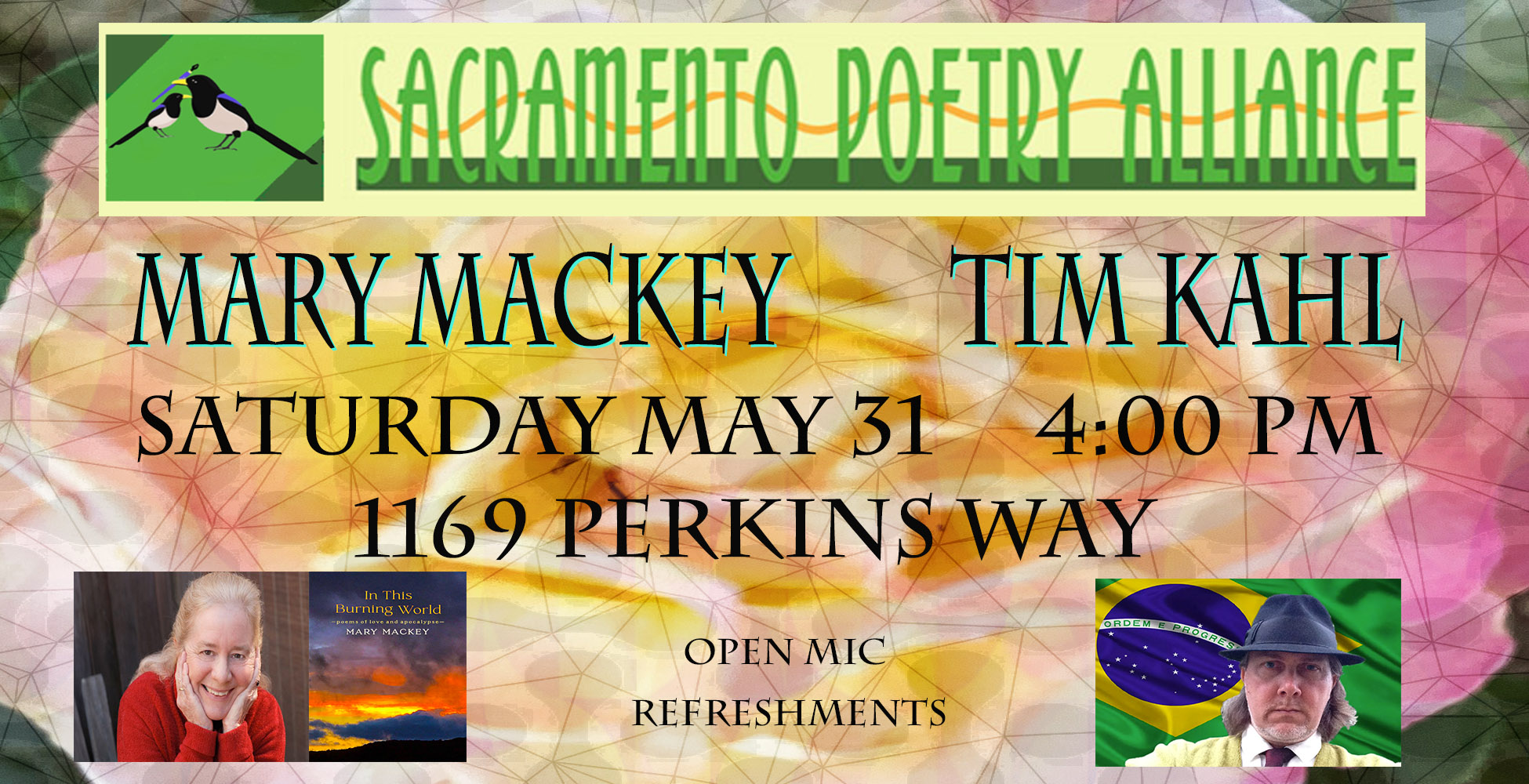

Mary Mackey became a writer by running high fevers, tramping through tropical jungles, being swarmed by army ants, and reading. She is the author of 9 poetry collections, including Sugar Zone, winner of a PEN Award; and The Jaguars That Prowl Our Dreams, winner of the Eric Hoffer Award for Best Book Published by a Small Press. Her poetry has been praised by Wendell Berry, Jane Hirshfield, D. Nurkse, Al Young, Daniel Lawless, Rafael Jesús González, and Maxine Hong Kingston for its beauty, precision, originality, and extraordinary range. She is also author of 14 novels including The New York Times bestseller A Grand Passion. After receiving her Ph.D. from the University of Michigan, she moved to California to become Professor of English at California State University, Sacramento (CSUS) where she became one of the founders of the CSUS Women’s Studies Program. She also helped found the CSUS English Department Graduate Creative Writing Program along with poet Dennis Schmitz and novelist Richard Bankowsky. Her most recent book is In This Burning World: Poems of Love and Apocalypse, a collection which asks us not only to imagine what the world will be like as the climate of the Earth changes, but how we can preserve joy and compassion in times of catastrophe.
I Will Sing Whale Songs
I will sing whale songs
I will chant with the crickets
and gather with the coyotes
to praise the moon
I will fly with the owls
turn my head around backwards
stare at the stars
with huge yellow eyes
Mary Mackey
from: In This Burning World: Poems of Love and Apocalypse
Tim Kahl [https://soundcloud.com/tnklbnny] is the author of six books of poems, most recently Omnishambles (Bald Trickster, 2019), California Sijo (Bald Trickster, 2022) and Drips, Spills, Bursts, Tangles, and Washes (Cold River Press, 2024).
He will be reading/performing a variety of poems about Brazil that he has written over the last 30 years which will be set to various kinds of Brazilian music from the last 100+ years and some music inspired by music from Brazil.
The Convent
The duty of a building is to keep life from becoming
fragile again as it makes its objections to a tranquil sea.
The only spectre beyond, a dark mast.
Ships haul iron ore to the port,
marking a path to the graves
of faithful creatures—birds
with stones they have crumbled in their beaks.
Urubus circle above the convent
waiting for the sea to throw their food
onto the outcrop. The sea is also aware of
how time lapses in a convent on a hill that has
a city below it. The Saint of Darkness is coming
to carry away the city during the night.
From the convent, you can see
the tip of the mast in the distance,
and from the ship you can see
a thousand candles abandoned in a building.
Tim Kahl, first published in New Laurel Review